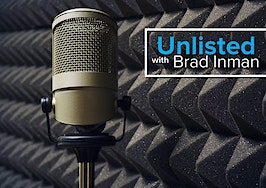- Low barriers to entry are enabling a new generation of real estate DIY discounters.
- The DOJ keeps an eye on the industry, so it does nothing to discourage these new models.
- These real estate rebels will spark many in the industry to up their game and adopt many of the new products, without changing their core service offer.
- Seven actions the industry should take. “Gut the fish now.”
After testing its ridesharing service in New York City with only three cars, Uber officially launched in San Francisco on July 5, 2010. On the last day of 2015, it celebrated its one billionth trip.
Mind-boggling.
But consider: One billion represents a small fraction of all personal trips on buses, trains, cabs, private autos, shared rides, bikes, pedicabs, skateboards and unicycles.
Like transportation, the fragmented residential real estate industry offers every imaginable business model, agent type and service level. And in the next 12 months, more real estate disrupters — smarter, bolder and better funded — will stake a claim on real estate, like Uber has done with transportation.
Call them oddballs, outsiders, discounters or any other label you can cook up, but reacting with fear may not be the industry’s smartest impulse.
A better strategy might be to learn from those who seemingly are a threat and quickly change how business is done. I’ve noticed how New York City cabs in the last few months have become cleaner; the drivers are friendlier and taxi companies are offering on-demand apps. At first, they overreacted and spent years trying to stop Uber, which got them nowhere.
Now, they are getting their game on. I am no longer a Uber-only righteous passenger; jumping in a cab lately is a more enjoyable experience. Competition makes you keener and stronger, and the marketplace becomes more dynamic and interesting.
So where is this new competition coming from in real estate? And what may have increased the odds of some digital upstarts succeeding?
Bountiful funding has played a role with a handful of hybrid brokers, like Redfin and Compass, which are slowly getting market share with more than $200 million in investment between the two of them. Though not too different from mainstream brokers, you can expect them to experiment and offer a plethora of new products like on-demand, agent-less showings and mobile apps that facilitate faster and friendlier closings. These hybrids use agents, even though Redfin employs them as full-time workers and offers consumer rebates.
Another variation of this approach is SRE Matrix in Hawaii, which is expanding in several markets this coming year after getting a toehold on the Islands. With a $100 million investment, the one-year old broker employs agents and rebates two-thirds of the buyer’s broker’s commission. The brokerage plans to generate most of its revenue by charging fees to mortgage, home inspection and title companies for exposure on its technology platform.
This is just the beginning. Something more game changing is afoot.
The DIY newbies
A new generation of self-serve, fee-for-service startups are entering the business. These newbies aren’t unsuccessful agents who discount because they can’t deliver on the full service model. They are often smart young entrepreneurs, who are getting the attention of legitimate investors who feel like real estate is poised for a shake up.
Take a look at HomeBay’s consumer promise.
“Everything You Need to Sell Your Home. Our technology replaces the realtor, guiding you intelligently through your home sale.” The offer includes putting your listing on the MLS after the seller fills out a simple form. Then, they promise to “market” the home, which means publishing it on the MLS — automatically feeding to Zillow and realtor.com.
Homelister does the same but with the added wrinkle that the service is provided through a mobile app. The company is expected to launch sometime in Q1.
You can imagine an entire category in the Apple App Store, dubbed Home Seller Apps.
This type of service has been around for sometime. Consider forsalebyowner.com and owners.com. What is different now is the changing habits of home buyers, capital for these new models, easy-to-use mobile applications and other technologies that simplify and mimic the traditional steps of searching for and closing a house sale.
And noise around this burgeoning cast of characters will go up a few decibels this year, as some of these rebels spend their investor money lathering up consumers about commissions and casting doubt about the role of the Realtor. One such company, SoloPro, has teed up an ad that the fledgling start-up plans to run later this quarter.
Here is part of the pitch: “Why is it … when you buy or sell a house … your hard-earned money goes to powerful real estate middlemen taking huge commissions?”
For some in the industry, these ads will be as irritating as a car alarm going off at 3 a.m. right outside your bedroom window.
Weak licensing laws create opportunity
How does this new gang of real estate outsiders penetrate the market? For one, the barrier to entry — licensing — is so low, which the established industry put in place and has never changed, despite its lobbying power. With standards equivalent to a pre-school education when compared to other financial services professionals, this friction-free path to becoming an agent or broker is core to the typical broker business model to work. It depends on lots of agents selling only a few homes but giving up a generous split with the broker.
This model is built on independent contractors, so brokers don’t face payroll and agents don’t get paid until they close a transaction. Again, keeping the barriers low and letting rogue agents roam the streets of real estate.
Imagine the pole in a limbo dance being placed six feet high, so anyone can dance under it.
This lowest-common-denominator agent has led to negative consumer opinions, harming the reputation of the entire industry.
A qualified and ethical agent is like a good boy in a small town with three older brothers who are juvenile delinquents.
The weak-agent licensing laws plays to the hand of the disrupters.
Once licensed, these startups can instantly put listings on the MLS, even if their limited services are confined to an Uber-like app. Why? Because the DOJ (Department of Justice) cracked down on the industry almost a decade ago when it was accused of keeping these alternative models out of the MLS. The settlement between the DOJ and NAR (National Association of Realtors) prevents any shenanigans by those running the MLSs.
In effect, the industry paved the way for these new companies, as they deploy innovative new technology and take advantage of the Internet, becoming the de-facto buyer’s agent. Now that buyers can see all the listings, and soon see homes instantly, many of them — not all — will go directly to the source, the homeseller, through these new applications that are slimmed-down middlemen.
The industry took an erector set and built this complicated Rube Goldberg machine that, for nearly a century, was invincible. Now it is being turned around and used against the very people who created it.
The next generation of buyers are digital
Feeding the trend is the growing self-serve generation, who grew up with a multitude of applications and devices that enable them to do things by themselves such as dispatching a car, paying with digital money, ordering food online, signing digital contracts, playing digital music, engaging in digital communication and using online insurance, banking and travel services.
Much of this is done with a desire to have no interaction with other human beings. Consider texting’s popularity vs. making a phone call.
As the analog generation dies off, the digital tribe takes over.
Where does Zillow fit in?
In an odd turn of events, this is where Zillow and Move may throw the industry a life preserver by touting the value of using a good Realtor to its enormous consumer audience. Their business models depend on agent success.
I can’t really imagine an alliance between NAR and Zillow jointly running ads promoting agents. But who knows? Such a partnership might thaw their ice-cold relationship.
Last year, when Spencer Rascoff interviewed me at a gathering of Zillow employees in Seattle, he asked what I thought of “paper brokers.” The tone of the question implied his disapproval of these offbeat business models.
In this new environment of more radical disrupters, all sorts of new alliances, partnerships and friendships will be formed as companies grapple with an inevitable threat.
What’s next?
Now, let’s go back to Uber and the cab companies. Faced with these challenges, what should the real estate industry road map look like?
- Get out of fear; that will get you nowhere. Remember, the industry is fragmented and will remain so for years to come. There is room for everyone. The cab companies would love to roll back the clock on their actions with Uber — focusing on competing, not combatting.
- For traditional companies and agents, humans are the crucial analog assets who make transactions happen. Figure out how to leverage this asset into a digital company that strives to make everything easier and more transparent for the consumer and for the agent.
- Demand agent reviews and third-party satisfaction surveys, so the best agents overcome the consumer trust problem — like Uber drivers building their online reputations. This separates the good and bad agents. Brokers should then get rid of the agents who don’t cut it, like Uber does.
- Embrace all of the front-end and back-end technology like on-demand showings and mobile closings so others don’t win the war over who is faster and better.
- Partner with the rebels so you can learn about their technology and even offer their services to your customers.
- NAR and state associations should do a legislative assault on changing state licensing laws, or face choking on their foolhardy conflict of interest. Imagine if the real estate lobby took licensing laws as seriously as preserving the mortgage interest deduction.
- Brokers and their franchises must change a core part of their business model . If I hear the word “evolution” again, I will puke. Evolution takes millions of years. Brokers must gut the fish now to get rid of the muck.
Kaboom!






